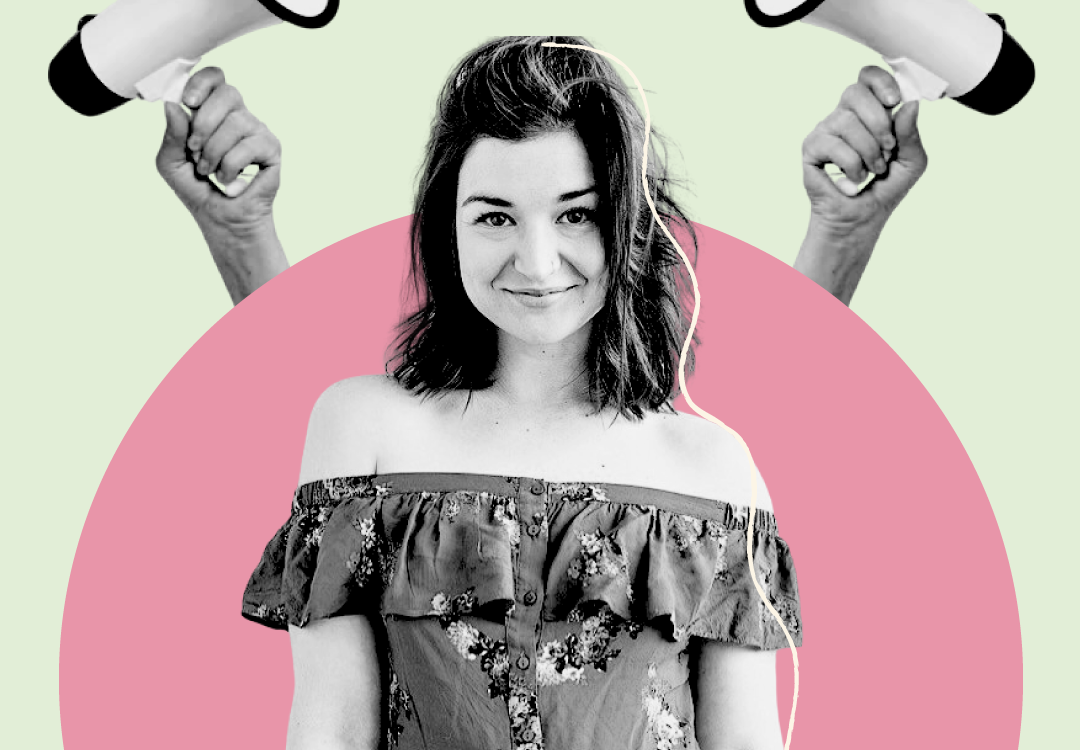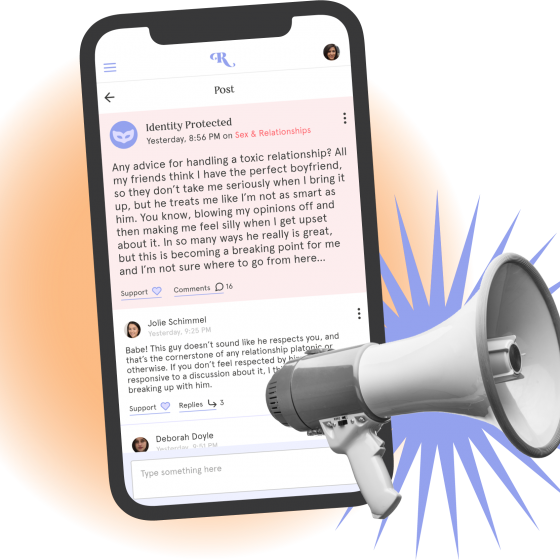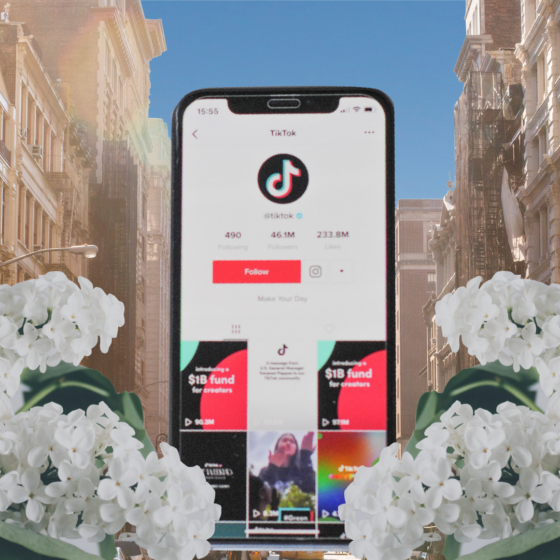My twenties have been a wild ride. Like, ‘what is happening to my entire life rn’ wild. It’s been a long nine years of repeating patterns, learning lessons, succeeding, failing, and wondering what the hell I’m doing at almost every turn. It’s been a long nine years of evolving into the person I was always meant to become and learning to sit in the discomfort that comes along with it. It’s been a long nine years of change.
And that’s the whole point of your twenties – to change. But, more importantly, the point is to learn to be okay with changing.
Most women are afraid of change, and why wouldn’t we be? Growing up, we’re taught to fear it.
Most women are afraid of change, and why wouldn’t we be? Growing up, we’re taught to fear it. We’re told that change is scary, and we should avoid scary things, because we’re too fragile to handle them. We’re encouraged to play it safe. We’re taught not to roughhouse on the playground because you don’t want to scrape your knee. We’re taught to get married sooner than later so we have a man to protect us. From the minute we’re born, a bow is slapped onto our heads, and we’re put into a safety bubble and expected to exist there for the remainder of our days. Some of us do. And some of us don’t.
But I’ve never been one to want to play it safe. And I do not like bows.
I remember when I began to break free of my safety bubble. I was a sophomore in college and had just changed my major from pre-med to film and theatre. Did my family understand it? Not really. Was I a little nervous? Sure. Was it a risk? Probably, but isn’t everything?
Was it a risk? Probably, but isn’t everything?
That year, I began to explore a bit more – my interests, people, travel. I joined a sorority because I was curious about it. I studied abroad for a summer because I wanted to get out of town. I auditioned for movies and plays and won awards at theatre competitions. I began writing. Once I began to explore my interests, the world opened its doors, almost as if it was awaiting my permission to show me all of the possibilities that were available to me. So, I stepped over the threshold.
When I was twenty-four, I moved out of my home state for the first time. My family and friends hated that I left, but I was thrilled. Look at me growing, I kept saying. I’m doing what I want. And it didn’t stop there.
For four years, I traveled everywhere that I could. I went to Ireland and hiked the Cliffs of Moher. I went to Germany and drank my weight in beer at Oktoberfest and witnessed a man chug from his actual boot. I hiked the Grand Canyon where I made friends with a squirrel (seriously, this happened). I quit my job as a teacher because I didn’t like it. I began writing more and meeting more people. My beliefs about nearly everything changed. I became more political because it’s important. I formed opinions and voiced them. I evolved, and while my evolution felt good to me, it didn’t always translate to everyone around me.
And that’s because I was different. I had changed.
Over the years, as my evolution continued, insecurities began to show up in the way I was living my life. I wondered if I was too wild and free and felt insecure about how I spent my days. Was I irresponsible? Should I go back to teaching? Should I be more traditional? Should I, should I, should I…
Was I irresponsible? Should I go back to teaching? Should I be more traditional? Should I, should I, should I…
I began to consult my friends and family for advice, which was helpful at times, but I also relied too heavily on it and trusted their opinions for my life over my own. Women are taught to second-guess the decisions we make. And why wouldn’t we be? Second-guessing ourselves and avoiding change go hand-in-hand. Second-guessing ourselves is a way we can avoid change. It’s the in-between stage from our old life to the new. It’s limbo. A safe space.
I second-guessed everything, from where I lived, to who I was dating, to the jobs that were paying my bills, to what I wanted to do with my life, to how I should cut my hair, and everything in-between. Everything. Any kind of decision I was faced with, my gut would tell me one thing, I wouldn’t listen, I’d chat with friends and family, and then I’d never decide. I was so torn between what I wanted and what others wanted of me that I became paralyzed in my decisions. Do I want to be with him? No, but he’s stable and said he loved me. Do I want to move back home? Yes. But how?
I was confused. And other people’s opinions didn’t help. I needed to be single, I needed to pursue writing, I needed to move back home, but I felt like I needed permission to do these things.
I felt like I needed permission to do these things
Women often feel like we need permission before we can make a choice. We can blame it on our upbringing or living in a patriarchal society, both of which could be at fault, but we don’t need anyone’s permission but our own. And once we enter adulthood, it’s up to us to squash antiquated ideals that exist within us if we ever want to live freely.
So, I changed. Or, I am changing, rather, because the journey isn’t over.
I stopped valuing another person’s opinions about my life over my own. I actually stopped asking altogether, because I know what I want for my life. I’m twenty-nine-years-old. I know what I want. And what I want is happiness, freedom to feel joy, and to live in my purpose.
I left my relationship of four years, and I moved back home. I found a place to live and decorated it how I wanted to. I learned how to say yes to things that excited me and no to things I had zero interest in. I cut my hair. I bought Doc Martens. I became way more political than I ever thought I would, and I learned to effectively assert myself in ways to yield results I wanted.
The impulse to ask for permission and validation are constraints women feel we’re bound to, but we’re not.
The impulse to ask for permission and validation are constraints women feel we’re bound to, but we’re not. The propensity to play it safe feels like self-preservation, but it’s not. Your wildest dreams feel far, far away, but they’re not. And you don’t need anyone to give you permission to go after what you want or to change your mind. All you need is to want to.
It starts with change, but, more importantly, it starts with being okay with change.
All of this evolution, metamorphosis, whatever you want to call it, is, at its core, change. But the only way to move forward in life, to release what’s no longer serving us to make space for the good to come in, is to embrace and truly know that it is okay to change. I’m twenty-nine-years-old and on the brink of thirty, and it’s taken me this long to fully learn that the reigns of my life are in my hands. They don’t belong to anyone else, and why would they?
My life belongs to me. And yours belongs to you. We deserve to be who we want to be. If you’re still on the journey of figuring out who that is, take your time, but know that whoever you are today, you don’t need permission from anyone to be them. If it changes tomorrow, then you can change with it.
That’s the whole point, remember?
Stop resisting. And give yourself permission. Give yourself permission to live your one and only life the way you want to. And know that it’s okay. It’s okay to change.









